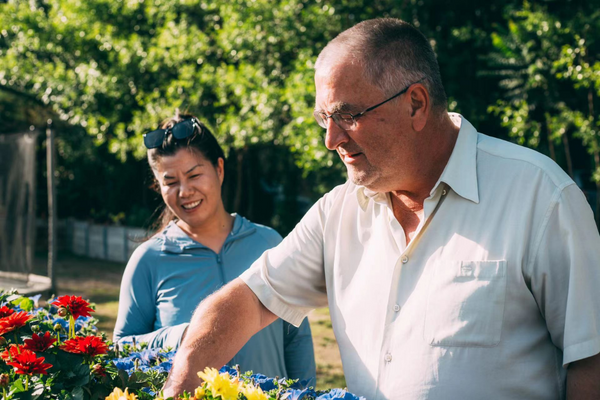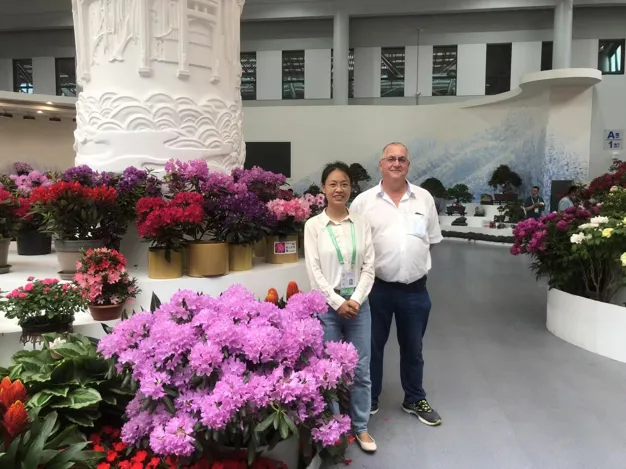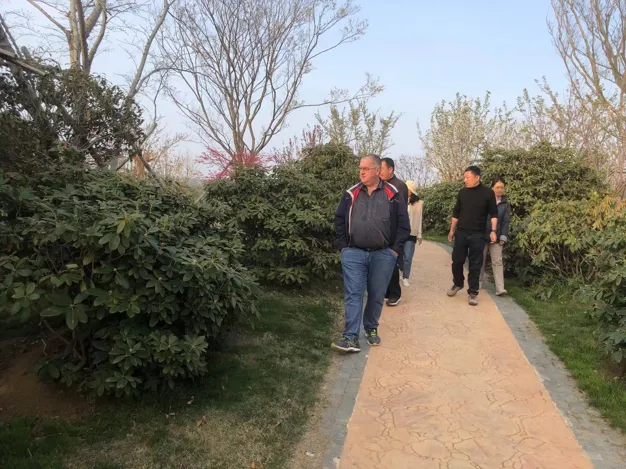"I have been in Ningxia, China, for more than 13 years, mainly providing planting consulting services to growers all over China, especially in the field of raspberries," said Norbert Fischer, from Germany.
"In 2007, our family business was sold to Syngenta. After that, I began to think, should I continue to find a big company to work for? Or try something more meaningful. In the end, I decided to use my professional skills to serve growers instead of a company."

"The market for raspberries in China is very small, especially ten years ago, and it is still dominated by frozen products. There is not much sales space for fresh raspberries. The main reason is that the berries are difficult to transport over long distances. Quality can be greatly lost during transportation. For growers, it is very important to grow raspberries with good quality, but it is also very important to find stable sales channels. Because once the raspberries are ripe and harvested, they need to be sold immediately. Otherwise, losses will occur. This is why most raspberries in the Chinese market are still sold as frozen products, which can reduce the sales pressure on growers. However, it is difficult for consumers to taste the delicious taste of fresh raspberries. Taste is very important to consumers in the Chinese market. Raspberry is a common fruit in European and American countries. Most of them are a bit on the sour side, and Chinese consumers prefer sweet ones. "
 "Doing agriculture is very hard work. You have to go and see the crop growing area yourself to know what is happening to the plant and adjust the solution quickly. I provide technical advice to clients in different provinces in China, involving raspberry, rhododendron, ornamental plant growers, tomato, and other crops. I travel a lot, even during the pandemic. Because communication is only done over the phone, the customer can only show part of the picture and may miss important details and cause mistakes. Now more and more high-tech equipment is installed in the nursery, but automation does not mean that people are completely unnecessary. The current technology cannot realize truly unmanned planting. Various changes occur during the planting process, and it takes years of accumulated experience to accurately identify them."
"Doing agriculture is very hard work. You have to go and see the crop growing area yourself to know what is happening to the plant and adjust the solution quickly. I provide technical advice to clients in different provinces in China, involving raspberry, rhododendron, ornamental plant growers, tomato, and other crops. I travel a lot, even during the pandemic. Because communication is only done over the phone, the customer can only show part of the picture and may miss important details and cause mistakes. Now more and more high-tech equipment is installed in the nursery, but automation does not mean that people are completely unnecessary. The current technology cannot realize truly unmanned planting. Various changes occur during the planting process, and it takes years of accumulated experience to accurately identify them."

"While providing planting technology consulting services, I have been passing on the concept of adapting measures to local conditions to my customers. We can see that many new soilless cultivation nurseries have been built in China in recent years for growing roses and tomatoes. There is no doubt that soilless cultivation is the way to future agricultural development. But what is important is that we maximize the use of natural resources according to the local climate and the crops we plant, reduce energy costs, and make modern agriculture a technology that truly benefits growers. "
For more information:
Norbert Fischer
[email protected]
